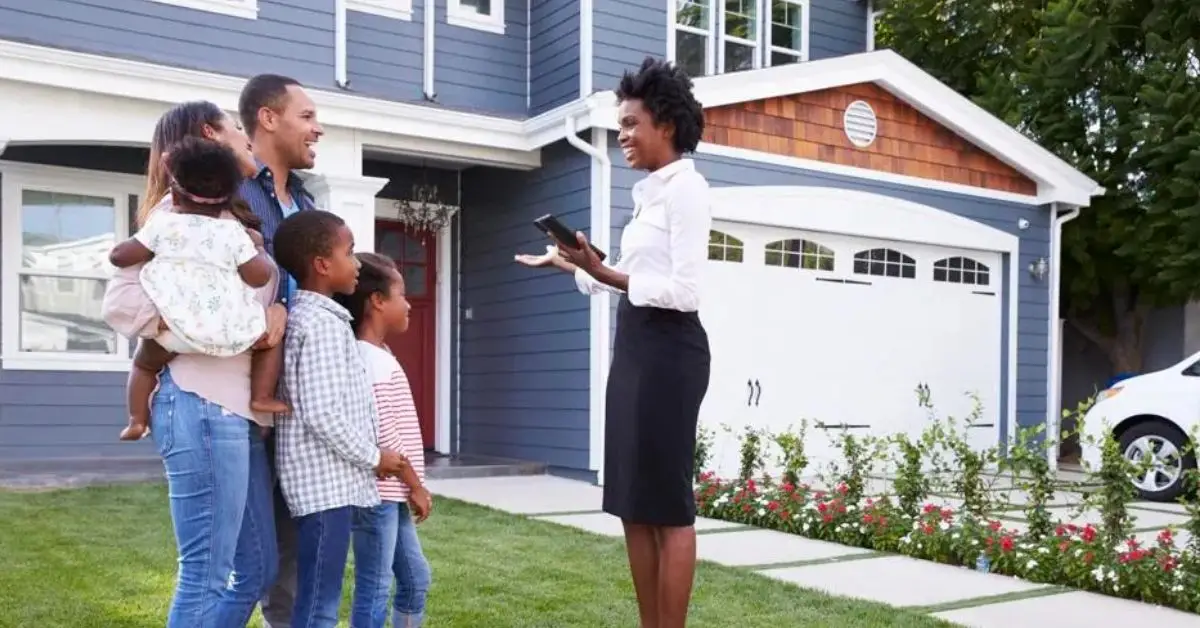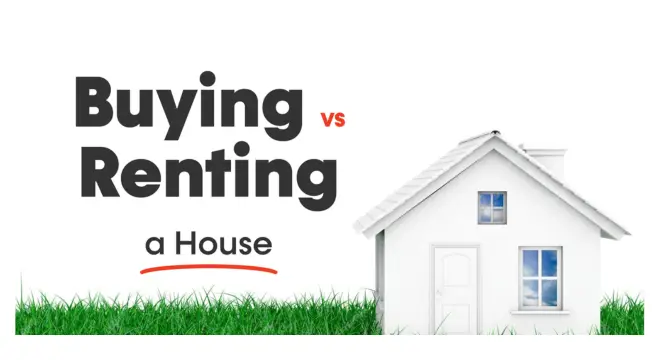Thinking About Selling Your House Yourself? Read This Before You Make a Mistake
I get it—you’re thinking about selling your house yourself. No agents, no commissions, no middlemen. Just you, a “For Sale” sign, and a plan to save thousands.
But before you jump in, let me stop you for a second. Because while it sounds simple, the reality of going FSBO (For Sale By Owner) is rarely what people expect. Most homeowners don’t realize what they’re walking into until it’s too late.
I’ve seen sellers price too high and lose all momentum. Others underprice and leave tens of thousands on the table. And then there are the legal and negotiation headaches that can drag on for weeks or kill the deal altogether.
If you’re even considering doing this on your own, you need to read what follows. I’m breaking down the nine most important things you absolutely have to know before you list.
This isn’t theory. These are the things that make or break a FSBO sale.
Let’s make sure you don’t learn them the hard way.
1. Why You Should Think Twice Before Going FSBO
Let’s be honest—FSBO sounds empowering. Who wouldn’t want to keep the 3% listing commission in their own pocket? But here’s what most homeowners don’t realize: skipping a real estate agent means you’re now responsible for everything they would normally handle—pricing, marketing, legal paperwork, buyer screening, negotiation, and managing inspections and closing timelines.
In theory, it seems manageable. In practice, it often turns into a second full-time job, and one mistake—especially with contracts or disclosures—can cost you far more than an agent’s fee.
According to the National Association of Realtors, FSBO homes typically sell for 5% to 26% less than those listed with an agent. That’s not pocket change. And that gap usually comes from poor pricing, limited exposure, and weak negotiation—not lack of effort.
The biggest trap? Thinking you’ll be the exception.
If you’ve never sold a home before, or you don’t have deep knowledge of your local market, legal processes, and buyer psychology, it’s worth questioning whether going solo is worth the risk.
Quick takeaway: FSBO works in some cases—but it’s not the easy money-saver most people imagine. Know exactly what you’re stepping into before you decide to go it alone.
2. Pricing — The Single Most Critical Decision You’ll Make
Let’s not sugarcoat it: if you get the price wrong, everything else falls apart. Overprice, and your listing goes stale while serious buyers scroll past. Underprice, and you leave money on the table that you can’t get back. And unlike agents who spend years mastering market comps, most FSBO sellers rely on guesswork—or worse, emotional attachment.

I’ve seen sellers price based on what they “need to make” or what their neighbor’s house sold for two years ago. But pricing your home isn’t about what you want—it’s about what the current market will actually pay. That’s where things get tricky.
To get this right, you’ll need to:
- Run a comparative market analysis (CMA)
- Understand price-per-square-foot trends in your exact neighborhood
- Adjust for condition, upgrades, and local demand
- Possibly pay for a third-party appraisal (worth it, by the way)
If you’re not 100% confident in your pricing strategy, stop here and rethink. It’s that important.
Quick takeaway: Your price is your marketing. Get it wrong, and nothing else you do will matter.
3. Preparing and Staging Your Home Like a Pro
Buyers don’t just buy houses—they buy what a house feels like. That emotional reaction starts the moment they see your listing photos or walk through the front door. If your place feels dark, cluttered, dated, or too “you,” it’s game over.
That’s why smart sellers treat preparation like a launch. This means deep cleaning, fixing obvious flaws, updating small things (hardware, paint, lighting), and neutralizing any personal style that could distract buyers. And no, this isn’t about pretending to be fancy—it’s about creating a space where anyone can imagine themselves living. Before you dive into full staging, consider these 5 genius home upgrades under $500 that instantly make your home look more expensive without blowing your budget.
If you want to go next-level, invest in:
- Professional photos (non-negotiable)
- Thoughtful lighting and natural elements (plants, mirrors, soft linens)
- A light scent or open windows—never anything overpowering
And remember: your goal isn’t to show buyers how you live. It’s to show them how they could.
Quick takeaway: Staging isn’t about impressing buyers—it’s about helping them feel at home.
4. Marketing Your Home — Online, Offline, and Social
If you think just listing your home on Zillow will bring in serious buyers, you’re setting yourself up for silence. The truth is, most FSBO listings get lost in a sea of noise unless you know how to actively market them—everywhere.

This is where agents shine—they know how to get eyes on your home. Without that reach, your property might never be seen by buyers who would’ve actually written an offer.
Here’s what you’ll need to do on your own:
- Get your home listed on the MLS using a flat-fee service (a must if you want buyer agents to find you)
- List on Zillow, Realtor.com, Redfin, Facebook Marketplace, and Nextdoor
- Share the listing in local WhatsApp or Facebook housing groups
- Schedule and host your own open houses
- Use simple paid Facebook/Instagram ads to target local buyers
- Create flyers and drop them at local cafés, gyms, or co-working spaces
Don’t underestimate the power of good visuals either. Homes with professional photography get significantly more attention than ones with dark, blurry phone pics. You’re not just selling square footage—you’re selling a story.
According to U.S. News Real Estate, FSBO sellers who combine MLS listings with active social and offline promotion tend to attract more serious buyers and shorten time on market.
If you’re not willing to hustle your own listing like a small business would, FSBO may not be the path for you.
Quick takeaway: If no one sees your listing, it doesn’t matter how good your house is. Visibility is everything.
5. Legal and Paperwork — Don’t Skip the Details
Here’s where a lot of FSBO sellers get blindsided: the paperwork isn’t just “sign here and done.” Selling a home comes with serious legal requirements—and missing even one can delay your sale, lead to lawsuits, or get you fined.
Depending on your state, you’ll be expected to provide:
- Mandatory seller disclosures (lead paint, flood history, material defects, etc.)
- A signed purchase agreement that protects both you and the buyer
- A clear title, and possibly a title company or attorney to handle closing
- Documents for contingencies like financing, inspections, and repair negotiations
- Local or state-specific forms that vary widely
You don’t need to be a lawyer, but you do need to protect yourself like one. One missed disclosure, one vague clause, and suddenly you’re on the hook for repairs—or worse.
It’s also important to remember: buyers today come prepared. Their agents (if they have one) will spot any sloppy paperwork or missing forms in seconds. You want your deal to move forward—not fall apart over technicalities.
Quick takeaway: Selling without an agent doesn’t mean selling without protection. Legal details aren’t optional—they’re the foundation of your entire deal.
6. Vetting Buyers and Managing Offers
One of the biggest mistakes FSBO sellers make? Assuming every person who shows interest is a serious buyer. They’re not.
If you don’t have a system to screen buyers up front, you’ll waste hours on casual lookers, unqualified dreamers, and people who can’t afford your home in the first place.

Here’s what you need to do the moment someone expresses interest:
- Ask for a mortgage pre-approval letter before scheduling a showing
- Avoid anyone who insists on “just taking a look” without paperwork
- Be ready to explain exactly what’s included or not in the sale
- Set clear deadlines and expectations for submitting offers
Once you start receiving offers, things can move fast—and get emotional. You’ll need to review not just the price, but also terms, timelines, contingencies, and closing flexibility. And you’ll need to do it without an agent translating the legal or financial implications.
According to Bankrate, one of the biggest pain points FSBO sellers report is navigating negotiation and paperwork alone. It’s not just about money—it’s about managing people, pressure, and details.
You’ll also need to watch for:
- Lowball offers designed to test your desperation
- Buyers who ask for unrealistic concessions after the inspection
- Contract changes that seem minor—but can cost you big later
This part of the process is where many FSBO sales start to unravel. Be calm, be clear, and if something feels off—pause and get advice.
Quick takeaway: It’s not about how many people are interested—it’s about how many are ready, qualified, and serious.
7. Calculating Real Savings — What You’re Really Losing or Gaining
A lot of people go the FSBO route for one reason: to save on commission. On paper, skipping that 5–6% agent fee sounds like a no-brainer. But here’s the hard truth—those savings are not guaranteed.
Yes, you might save on listing agent commission. But unless you also avoid paying a buyer’s agent (which is rare), you’ll still owe 2.5%–3%. And if your pricing, marketing, or negotiation isn’t airtight, you could lose far more than you save.
According to the National Association of Realtors, FSBO homes sell for tens of thousands less than agent-assisted homes. That’s not a scare tactic—it’s real data from thousands of transactions. Most of that difference comes down to pricing mistakes, weak exposure, and negotiation gaps.
Here’s what many FSBO sellers forget to factor in:
- Holding costs for homes that sit unsold for longer
- Discounts buyers expect when they know there’s no agent
- Legal or paperwork errors that delay or kill deals
- Paying out of pocket for things agents usually cover (photos, signage, open houses)
So while it might feel like you’re cutting costs, what you’re often doing is trading commission for risk. If you’re trying to avoid costly mistakes, check out this guide on 8 common home buying and selling mistakes that could cost you big. And if you’re not a skilled negotiator or a savvy marketer, that’s a risky bet.
Quick takeaway: Saving money on paper doesn’t mean you’ll make more in the end. Always run the full math before deciding FSBO is the better financial move.
8. When to Use a Hybrid Approach or Get Help
Selling your home yourself doesn’t have to mean doing everything alone. In fact, some of the most successful FSBO sales happen when sellers get help in the right places—without hiring a full-service agent.
This is where the hybrid approach comes in. You still control the sale, but you bring in professionals for the parts that actually impact your outcome.
Here’s what a smart hybrid FSBO strategy can look like:
- Pay a flat fee to list your home on the MLS, so it shows up where real buyers (and buyer agents) are searching
- Offer a standard buyer’s agent commission (usually 2.5–3%) to attract agents who are otherwise hesitant to show FSBO homes
- Hire a real estate attorney to review your offer, disclosures, and contract language
- Bring in a professional photographer and maybe even a stager to help your listing pop
This is exactly what many real FSBO sellers recommend in forums and communities. In one Reddit thread, users shared how combining MLS exposure with legal help gave them control without sacrificing safety or reach.
The benefit? You cut commission costs where it matters—but without putting the entire transaction at risk.
Quick takeaway: FSBO doesn’t have to be all or nothing. Knowing where to spend a little can protect your deal and your sanity.
9. Time Commitment and Emotional Toll
Here’s something most FSBO guides don’t talk about: how exhausting it is.
You’re not just “selling your house.” You’re answering calls, replying to flaky messages, scheduling showings, deep-cleaning again and again, juggling buyer personalities, negotiating under pressure, chasing paperwork, managing timelines, and second-guessing every decision—while still living your life.

Most sellers underestimate how much time this takes. The average FSBO process can stretch for weeks or even months, especially without strong buyer traffic or pricing clarity.
And emotionally? It’s a rollercoaster.
Buyers will criticize things you love. Some will ghost after multiple showings. Offers will fall through. Inspections may turn into bargaining matches. All of it lands squarely on your shoulders—because there’s no agent to run interference.
It’s not about fear. It’s about being realistic with your time, energy, and bandwidth.
Quick takeaway: FSBO is more than a financial decision. It’s a full-time role—make sure you’re truly ready for the job.
10. Hidden Costs and Closing Fees You Shouldn’t Ignore
Most people go FSBO to save money—but ironically, they often miss the hidden costs that sneak in along the way. These aren’t just little extras. They’re real expenses that can eat into your bottom line if you don’t plan for them from day one. And if you’re selling a rental or investment property, you’ll definitely want this smart landlord’s checklist to make sure you’re not missing key steps.
Let’s break down what many first-time FSBO sellers don’t account for:
- Title fees and transfer taxes, which vary by state and can add thousands
- Seller-side closing costs, like escrow fees or courier services
- Attorney fees (especially if required in your state)
- Professional photography and marketing materials
- Lockboxes, yard signs, and staging rentals
- Repairs and cosmetic fixes to pass inspections
- Costs of re-listing or price dropping if your home sits too long
And then there’s time: the hours you spend handling all this aren’t “free.” If you’re taking days off work, delaying your move, or covering double mortgage payments, those costs are real too.
As Investopedia points out, FSBO isn’t cost-free—it just moves the expenses around. You’ll still need to spend money to sell well, even without paying a full commission.
So yes, FSBO might save you money if everything goes smoothly. But if you’re cutting corners—or just unaware of these real-world costs—you may walk away with less than you expected.
Quick takeaway: You’re not just saving a commission—you’re trading it for a different set of costs. Make sure you know the full picture before you decide.
Final Thought: Know What You’re Really Signing Up For
Selling your home yourself can absolutely work—but it’s not easy, and it’s not for everyone.
You’ll need to think like a marketer, price like a strategist, negotiate like a pro, and stay calm under pressure—all while managing a process that’s legal, emotional, and financially loaded.
Some sellers pull it off and feel proud. Others hit a wall, lose money, or end up hiring an agent halfway through. Neither path is wrong. What matters is knowing what you’re getting into—and making an informed decision based on your time, skills, and risk tolerance.
So before you stick a sign in your yard, pause and ask yourself:
Am I ready to do this alone—or just trying to avoid paying someone else?
You’ve got options. Just make sure they’re working for you, not against you.
Over to You
- Have you sold a home yourself—or considered it?
- What made you choose FSBO, and what would you do differently next time?
I’d love to hear your experience. Drop your thoughts, lessons, or questions in the comments below. Let’s make this smarter together.
Want more tips on selling smart, saving money, and getting your home market-ready? Visit Build Like New for expert guides, checklists, and real homeowner insights.
Disclaimer: This article is for informational purposes only and does not constitute legal, financial, or real estate advice. Always consult a licensed professional before making major decisions related to home sales.


